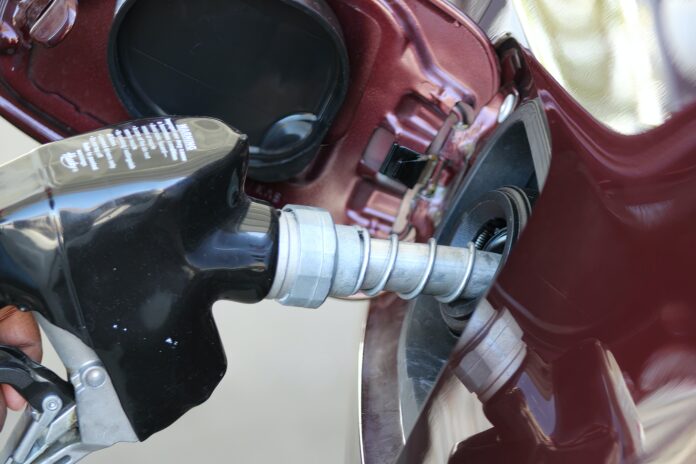Are you feeling the pinch at the pump lately? You’re not alone. Petrol and diesel prices are on a relentless upward trajectory, leaving motorists with thinner wallets. In recent times, we’ve witnessed petrol prices rising nearly 7p per litre, and diesel following suit with an 8p increase. This means filling up your tank now costs an extra £3.74 for petrol and a significant £4.41 for diesel. Let’s delve into this fuel price crisis and understand how it’s affecting your budget.
Rising Petrol Prices: A Painful Reality
The surge in petrol prices is hitting drivers hard. An increase of nearly 7p per litre may not sound like much, but it translates to a significant burden on your wallet. If you own a typical car with a 55-litre tank, you’re forking out an extra £3.74 every time you fill up. The relentless march of petrol prices shows no sign of stopping, and it’s leaving many motorists feeling the financial strain.
The Diesel Dilemma: Costs Soaring Higher
Diesel users aren’t faring any better. With an 8p per litre hike, filling a tank now costs £4.41 more than it used to. Diesel has long been the preferred choice for those covering long distances or driving fuel-efficient vehicles. However, these recent price increases are pushing many diesel vehicle owners to reconsider their options.
Factors Behind the Price Surge
So, what’s causing these dramatic price increases? Several factors are contributing to the pain at the pump.
1. Global Oil Prices
The cost of crude oil, a primary ingredient in petrol and diesel production, has been experiencing turbulence. International events, supply disruptions, and geopolitical tensions can all send oil prices soaring, which in turn affects what you pay at the petrol station.
2. Supply Chain Disruptions
The COVID-19 pandemic has wreaked havoc on supply chains across the world. This disruption has created bottlenecks and delays in the distribution of fuel, leading to higher costs.
3. Taxes and Levies
Government taxes and levies play a significant role in fuel prices. As these levies increase, the cost of petrol and diesel at the pump rises accordingly.
4. Environmental Regulations
Stricter environmental regulations often require fuel producers to invest in cleaner, more expensive production methods. These costs are then passed on to consumers.
5. Currency Exchange Rates
Exchange rate fluctuations can impact the price of imported fuels. When the local currency weakens against the currency in which oil is traded, fuel prices can rise.
The Domino Effect on Your Wallet
The escalating fuel prices are having a ripple effect on your daily life. Let’s take a closer look at how these increases are affecting your finances:
1. Higher Commuting Costs
If you rely on your car to commute to work or run errands, the rising fuel prices mean you’re spending more on each trip. Your monthly commuting expenses are on the rise.
2. Inflationary Pressures
Increased fuel costs can trigger broader inflationary pressures. When transportation costs rise, the prices of goods and services often follow suit, impacting your overall cost of living.
3. Budget Adjustments
To cope with these rising costs, you may need to adjust your budget. Cutting back on discretionary spending or exploring alternative transportation options may become necessary.
4. Business Impact
For business owners who rely on transportation, higher fuel costs translate to increased operational expenses. This can lead to tough decisions about pricing, staffing, and profitability.
5. Environmental Considerations
Rising fuel costs may also prompt individuals to consider more fuel-efficient or eco-friendly vehicles, which can be a wise long-term investment.
Finding Relief: Fuel-Saving Strategies
While you can’t control the global factors impacting fuel prices, you can take steps to mitigate their impact on your wallet:
1. Carpooling and Ride-Sharing
Share rides with colleagues or use ride-sharing services to split the fuel costs.
2. Public Transportation
Consider public transportation options for your daily commute. It can be a more cost-effective and eco-friendly choice.
3. Fuel-Efficient Driving
Adopt fuel-efficient driving habits, such as gentle acceleration and maintaining a steady speed on the highway.
4. Regular Vehicle Maintenance
Ensure your vehicle is well-maintained, as proper upkeep can improve fuel efficiency.
5. Exploring Electric Vehicles (EVs)
If you’re in the market for a new car, explore the benefits of electric vehicles, which can offer significant long-term savings on fuel costs.
Navigating the Fuel Price Storm
As petrol and diesel prices continue their upward ascent, it’s essential to stay informed about the factors driving these increases and take proactive steps to manage your expenses. Whether through carpooling, public transportation, or exploring alternative vehicles, you can navigate this challenging fuel price landscape while keeping more money in your pocket. While you can’t control global market forces, you can control how they impact your finances with smart choices and budget-conscious decisions.



